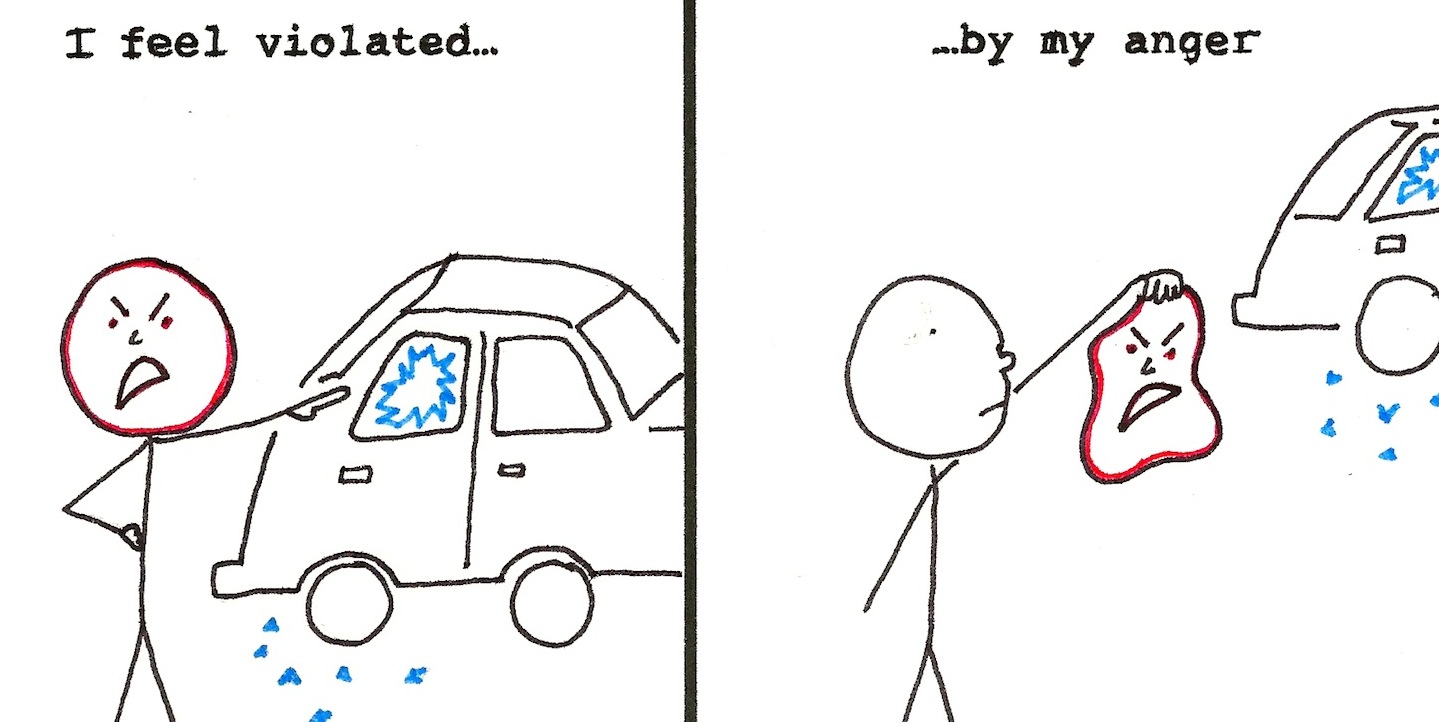Social Intelligence

IMAGE OF THE WEEK

One day, late for a meeting in midtown Manhattan, I was looking for a shortcut. So I walked into an indoor atrium on the ground floor of a skyscraper, planning to use an exit door I had spotted on the other side that would give me a faster route through the block.
But as soon as I reached the building's lobby, with its banks of elevators, a uniformed guard stormed over to me, waving his arms and yelling, "You can't walk through here!"
"Why not?" I asked, puzzled.
"Private property! It's private property!" he shouted, visibly agitated.
I seemed to have inadvertently intruded into an unmarked security zone. "It would help," I suggested in a shaky attempt to infuse a bit of reasoning, "if there were a sign on the door saying 'Do Not Enter.' "
My remark made him even angrier. "Get out! Get out!" he screamed.
Unsettled, I hastily beat my retreat, his anger reverberating in my own gut for the next several blocks.
When someone dumps their toxic feelings on us – explodes in anger or threats, shows disgust or contempt–they activate in us circuitry for those very same distressing emotions. Their act has potent neurological consequences: emotions are contagious. We "catch" strong emotions much as we do a rhinovirus – and so can come down with the emotional equivalent of a cold.
Every interaction has an emotional subtext. Along with whatever else we are doing, we can make each other feel a little better, or even a lot better, or a little worse – or a lot worse, as happened to me. Beyond what transpires in the moment, we can retain a mood that stays with us long after the direct encounter ends – an emotional afterglow (or afterglower, in my case).
These tacit transactions drive what amounts to an emotional economy, the net inner gains and losses we experience with a given person, or in a given conversation, or on any given day. By evening the net balance of feelings we have exchanged largely determines what kind of day – "good" or "bad" – we feel we've had.
SEED QUESTIONS FOR REFLECTION: How do you transcend the emotional economy to make the emotions you entertain a decision and not a reactive choice? How do we gain the awareness and equanimity to avoid catching the "rhinovirus"? Can you share a personal story of transcending the emotional economy?